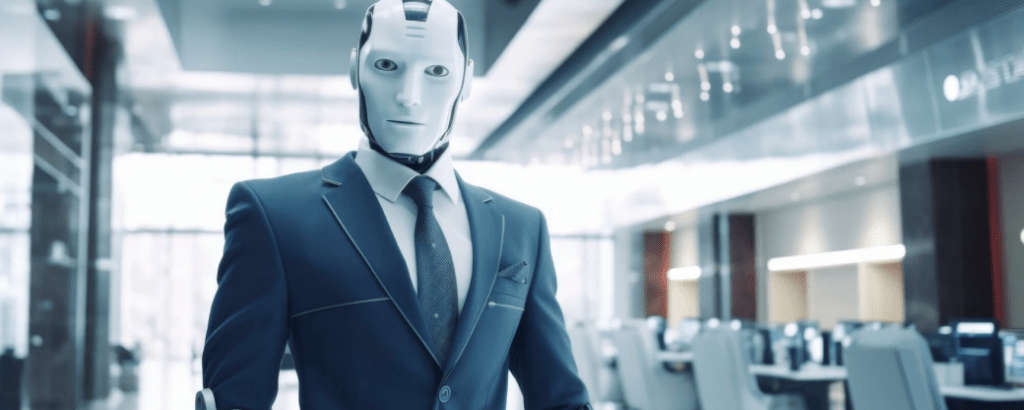The integration of Artificial Intelligence (AI) into the interview process is no longer a futuristic concept—it’s happening now, and it’s transforming the way companies and candidates navigate the hiring landscape. By leveraging advanced algorithms and machine learning, AI is reshaping traditional interview methods and significantly improving efficiency for both recruiters and job seekers. Here’s a deep dive into how AI is revolutionizing the interview process.
- Automated Resume Screening
One of the most time-consuming aspects of recruitment is sifting through countless resumes to identify qualified candidates. AI-powered tools can quickly analyze resumes, extracting relevant information and matching it against job requirements. These tools use natural language processing (NLP) to understand the context and nuances of job descriptions and resumes, ensuring a more accurate screening process. This not only saves recruiters valuable time but also reduces the risk of overlooking potential candidates.
- Enhanced Candidate Matching
AI can evaluate candidates beyond keywords and experience, considering factors like skills, cultural fit, and potential for growth. By analyzing data from previous successful hires and company-specific criteria, AI systems can rank candidates based on their suitability for the role. This ensures that recruiters focus their efforts on the best matches, leading to higher quality hires and reduced turnover rates.
- Bias Reduction
Unconscious bias can influence hiring decisions, often leading to a less diverse workforce. AI algorithms, when designed and monitored correctly, can help mitigate this issue. By standardizing the evaluation criteria and focusing solely on candidate data, AI reduces the influence of human biases. This promotes a more inclusive hiring process, where candidates are assessed purely on their qualifications and fit for the role.
- Streamlined Interview Scheduling
Coordinating interviews can be a logistical nightmare, especially when dealing with multiple candidates and interviewers. AI-driven scheduling tools can automate this process by syncing calendars, suggesting optimal times, and even sending reminders. This not only enhances efficiency but also provides a seamless experience for candidates, reflecting positively on the company’s brand.
- AI-Powered Video Interviews
Video interviews have become increasingly popular, and AI is taking them to the next level. AI-powered platforms can analyze video interviews to assess candidates’ communication skills, emotional intelligence, and even honesty. By evaluating facial expressions, tone of voice, and speech patterns, these tools provide additional insights that are often missed in traditional interviews. This helps recruiters make more informed decisions.
- Real-Time Feedback and Analysis
AI can provide real-time feedback during interviews, allowing recruiters to adjust their questions based on the candidate’s responses. This dynamic approach ensures that the interview process is more interactive and tailored to each candidate. Additionally, AI can analyze interview data to identify trends and areas for improvement, helping companies refine their interview strategies over time.
- Predictive Analytics
Predictive analytics leverages historical data to forecast future outcomes. In the context of recruitment, AI can predict a candidate’s potential success within a company by analyzing data from past hires. This includes their performance, tenure, and career progression. Such insights enable recruiters to make data-driven decisions, increasing the likelihood of successful hires.
- Enhanced Candidate Experience
A positive candidate experience is crucial for attracting top talent. AI enhances this experience by providing personalized interactions and timely updates throughout the hiring process. Chatbots, for example, can answer candidates’ questions, guide them through application stages, and offer immediate feedback. This level of engagement keeps candidates informed and engaged, reducing drop-off rates.
- Continuous Learning and Improvement
AI systems continually learn from new data, improving their accuracy and efficiency over time. This means that the more they are used, the better they become at identifying top candidates, predicting success, and reducing biases. This continuous improvement ensures that companies can stay ahead in the competitive talent market.
Conclusion
AI is undeniably revolutionizing the interview process by automating tedious tasks, enhancing decision-making, and improving the overall candidate experience. While it’s important to remain mindful of ethical considerations and ensure that AI systems are designed and monitored to prevent biases, the benefits are substantial. Companies that leverage AI in their recruitment processes are better positioned to attract, assess, and retain top talent, ultimately driving business success.
As AI technology continues to evolve, we can expect even more innovative solutions that will further streamline and enhance the hiring process, making it more efficient, fair, and insightful than ever before.





